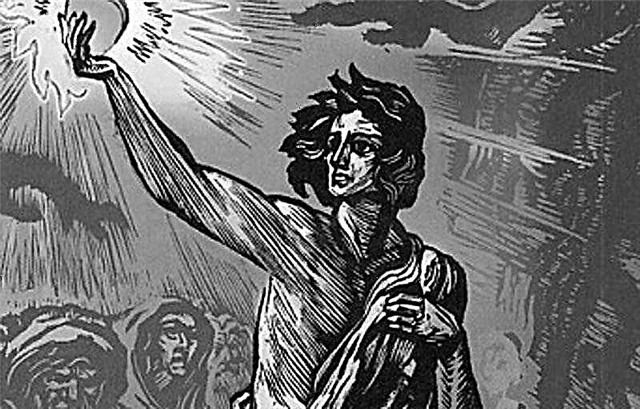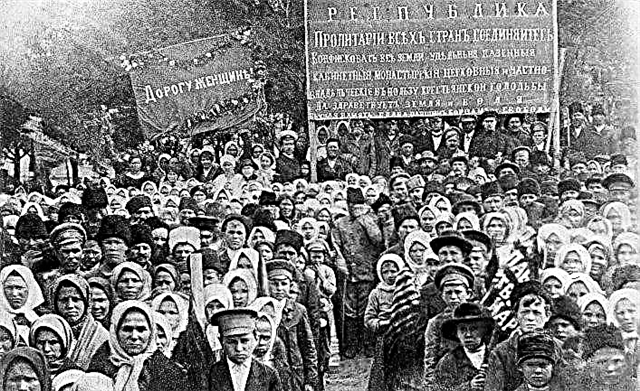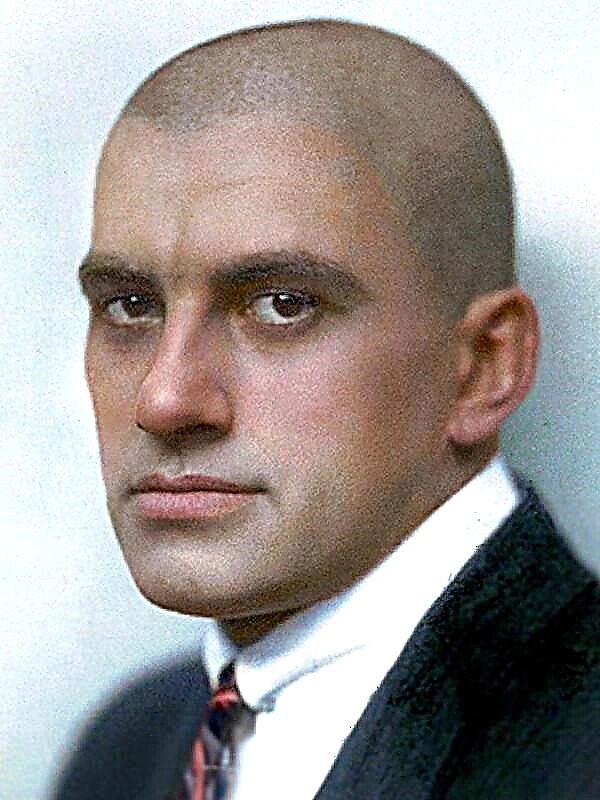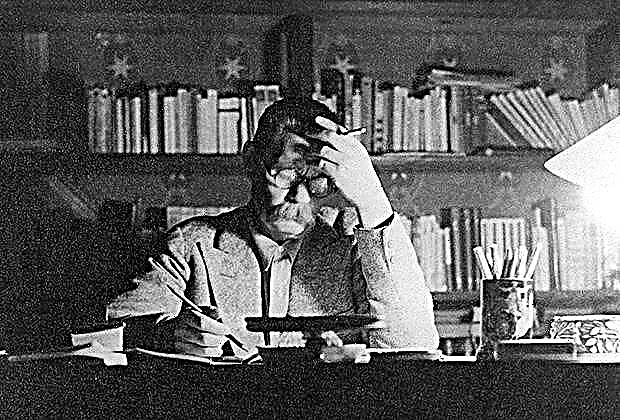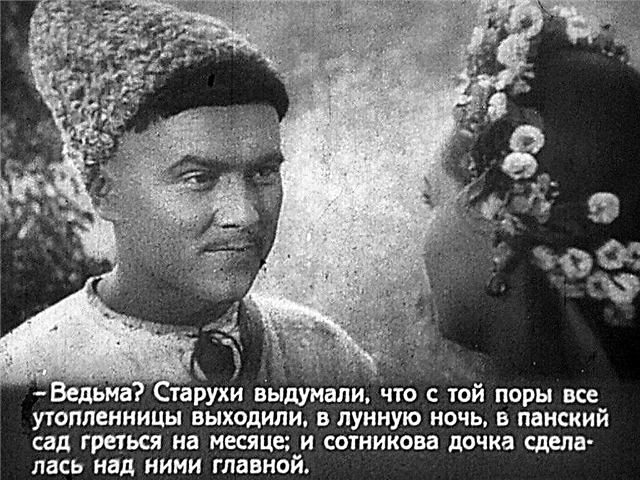The most important thing in the final essay is examples from the literature. They determine the jury's attitude to work. Therefore, it is so important to take the time to read high-quality collections with arguments that will reveal the main topics in one direction. Here is just such an article. But we need your help to improve it! Write in the comments which books you need to add to our list, and the Literaguru team will definitely do this.
M. Gorky, “At the bottom”
In the play “At the Bottom” by M. Gorky, the relations of the heroes are built on bitterness and revenge. Each of them, without hesitation, takes revenge on everyone else for falling to the bottom of life. All these poor people pull each other even deeper, because no one should have a return road if you don’t have it yourself. This is the unwritten law of an overnight stay. For example, Vasilisa tyrannizes her younger sister because of jealousy. Her lover, Vaska Ashes, showed sympathy for her, and the tyrannical woman was outraged. Her revenge reached its climax in the finals, when her legal husband died as a result of a fight. Now Ash is threatened with loyal hard labor, but his ex-lady of the heart does nothing to save him, on the contrary: she diligently drowns everyone in her slander. Even her “love” for Vaska does not stop the vengeful nature of the heroine. Obviously, revenge is a feeling that destroys a person from within and expels all virtues from him.
In the play “At the Bottom” by M. Gorky, heroes are not inclined to show generosity. On the contrary, they strive to hurt and stab each other more painfully, because poverty expels from them everything that makes a person a person. But there is one wanderer who breaks the vicious circle of insults and insults. This is Luke. He also lived a difficult life, even hinted that he had escaped from hard labor. But these tests did not harden him. The old man finds affectionate words of support and participation for each interlocutor. True magnanimity shines in his eyes to all those around him. He gave the inhabitants of the bottom hope for a bright future, and they themselves are to blame for the fact that this was not enough for their moral revival. In their caustic environment, the wanderer did not hold out for a long time and left, probably realizing that these poor people have not only houses but also hearts, since they mercilessly drown each other. Unfortunately, generosity cannot always help people.
A. I. Kuprin, “The Duel”
In the book “Duel” by A. Kuprin, the main character takes care of the officer’s wife, and the woman encourages his attempts at rapprochement. Romashov is sincerely in love, only Shurochka plays with his feelings. She mercilessly dooms him to death for the sake of the promotion of her husband. It’s not that a close person was important to her, she just wants to be transferred to a new place where she can have fun. Due to gossip and anonymous notes, the deceived spouse appoints a duel to Romashov. He wants to avenge the violated honor. Shura assures the hero that they will shoot “for fun,” only so that Nikolaev is not considered a coward. The young second lieutenant believes his beloved woman, but in a duel her husband kills an opponent, rising in the eyes of fellow soldiers. Unfortunately, in society of that time, revenge was considered the norm, so hundreds of young people capable of more were victims. We can conclude that revenge is dangerous for people in that, because of a sense of imaginary justice, they appropriate the right to dispose of other people's lives.
In the book “Duel” by A. Kuprin, Romashov throws a bored mistress. But the woman does not want to let the young man go and swears that she will take revenge on him at all costs. Raisa Alexandrovna Peterson was a desperate adventurer. She decided that it was necessary to compromise the new lieutenant's relationship, but he and Shurochka had absolutely nothing. But Mrs. Peterson, because of her corruption, thought differently and sent out anonymous letters exposing the treason of Nikolayev’s wife. The deceived spouse broke out and demanded a duel. As a result of the intrigues of Shurochka herself, Romashov was killed, and her husband triumphantly "defended the honor of the family." The consequences of revenge are always tragic: an innocent man is killed, and he can no longer be returned by any tricks.
A. S. Pushkin, “Eugene Onegin”
In A. Pushkin's novel Eugene Onegin, revenge led to tragedy: a young poet Lensky was killed. It all started with the fact that the main character received a letter where Tatyana confessed his love to him. He rejected the feelings of the girl, referring to his unsuitability for family relationships. Naturally, he did not want to embarrass her with his presence, but an enthusiastic friend invites him to Tatyana's birthday. There he expects to spend a pleasant evening with the bride. Eugene agrees, but at the very evening feels an extreme degree of awkwardness. He blames Vladimir for everything and decides to take revenge by flirting with his beloved Olga, a windy coquette. Lensky was furious, because he did not get the girl's attention. He challenged the opponent to a duel, and Eugene could not refuse. As a result, Onegin killed a comrade because of his petty and stupid revenge. Here are the consequences of the alleged pursuit of justice.
In the novel of A. Pushkin "Eugene Onegin" the ideal of a magnanimous woman is depicted. This is Tatyana Larina. Her soul can truly be called great, because she neglected her passion for the sake of maintaining family well-being. Once in her youth, the girl fell in love with a visiting nobleman who did not take her feelings seriously. But the heroine kept them in her heart forever, although she married another person. She did not like the General, but respected and was grateful to him for the adoration with which he treated her. When, after many years, Eugene returned from wandering around the world, he ignited a passion for Tatyana. But she was married and refused to the one whom she still wholeheartedly loved. The heroine generously rejected her own happiness in order to preserve the peace and joy of a loved one. Indeed, real generosity requires self-denial.
A. Pushkin, The Queen of Spades
In A. Pushkin’s drama “Queen of Spades”, the hero is trying with all his might to find out the secret of three cards - a secret that always allows winning cards. He wanted to make a great fortune and take a high place in society, but the long years of work seemed ridiculous to him when he learned from Tomsky that his relative could tell how to always win. Then Hermann launched an attack on the Countess’s pupil, confessing to the unhappy girl in feelings. She could not resist and invited the young man to a night date in the house. The hero came, but he was not interested in Lisa, but the old woman with her secret. He scared the unfortunate woman, she died. But her ghost returned and betrayed a coveted secret in exchange for a promise to marry Lisa. Hermann, of course, did not restrain him, but sat down at the gaming table. However, the decisive battle failed him: he lost all his money. The old woman’s revenge was terrible: the young man went crazy with grief. The author teaches an important lesson: revenge cannot be predicted, it will appear at any time, so you should not commit reprehensible acts in the hope of avoiding retaliation.
Lack of generosity can destroy a person. A. Pushkin demonstrates such an example in the drama The Queen of Spades. The hero uses the innocent girl for selfish purposes, trying to find out the secret of three cards from her patroness, in order to always win victories in card fights. For this, he does not shun deception. Lisa lets him into the Countess’s house, but Hermann came there only to find out the secret. He did not spare the elderly woman, in fact, bringing her to death with his threats. After the ghost nevertheless shares the necessary information with him, the hero still did not come to his senses, breaking the word. He did not marry the abandoned Lisa. He was worried only about his own success, and he did not spare the people who played with him and suffered ruin. As a result, Hermann loses his mind, because after the collapse, no one will help him, the egoist, and he knows this. If the hero was magnanimous, he would achieve the goal in an honest way and live a happy life full of love, sympathy and harmony, and not a brief moment of success, consisting of deception, crimes and sins.
M. Yu. Lermontov, “Hero of our time”
In M. Lermontov’s novel “A Hero of Our Time”, the author describes the tragic consequences of revenge using the example of Kazbich, who killed the kidnapped girl in order to take revenge on Pechorin. At the beginning of the chapter, Maxim Maksimych reports that Grigory fell in love with a Caucasian beauty and decided to steal her by bribing her brother. He promised him the well-known Kazbich horse, which Azamat dreamed about. The deal was completed, Bela was captured by Pechorin. But Kazbich sought her hands, so he got very angry when he found out about this, and decided to take revenge on the offender. When Gregory and Maxim Maksimych went off to hunt, the hero took the girl, but they were quickly caught up. Fleeing from the chase and realizing that they cannot escape together, the kidnapper kills the victim and throws him on the road. Did he achieve justice with his revenge? Not. He only killed the beautiful Bela, left with nothing.
In the novel by M. Lermontov, “The Hero of Our Time”, all the failure of revenge is proved. Grushnitsky tried to achieve justice with her, but he himself fell victim to his aspiration. The fact is that he was trying to impress Princess Mary. He was in love, but the girl remained indifferent to him, because next to her was a more skilled gentleman - Pechorin. Gregory fell in love with a young girl, playing coldness towards her, which spurred her vanity and aroused curiosity. In desperation, the junker decided to take revenge on a successful rival. Together with friends, he noticed how Pechorin left the princess’s house at night. He walked away from his mistress Vera, but Grushnitsky accused him of seducing Mary. Naturally, Gregory called the liar to a duel. Then the cowardly slanderer decided not to load his gun in order to win the duel and get rid of the opponent. But Gregory saw through the deceiver, and it was Grushnitsky who became the victim. What did he achieve with his revenge? Nothing but his own death.

